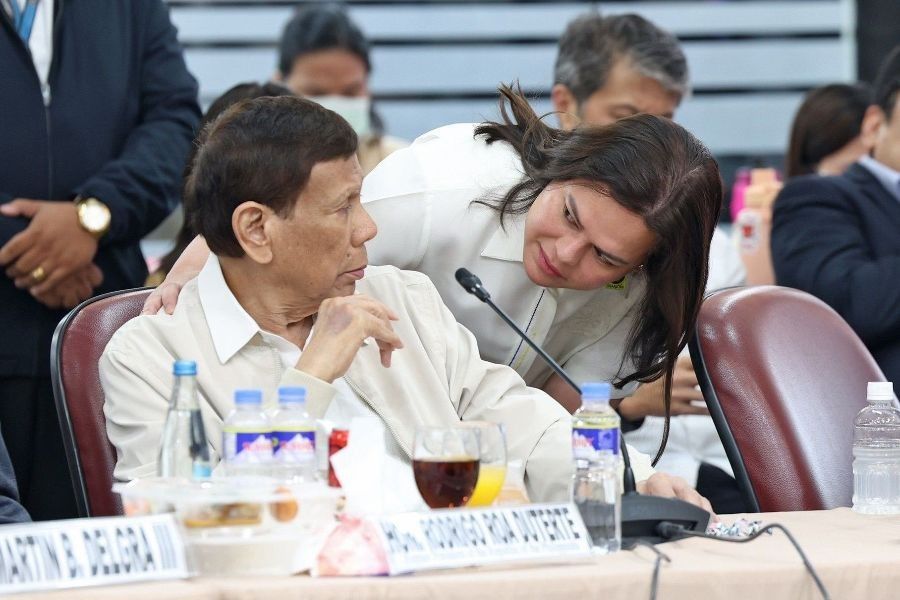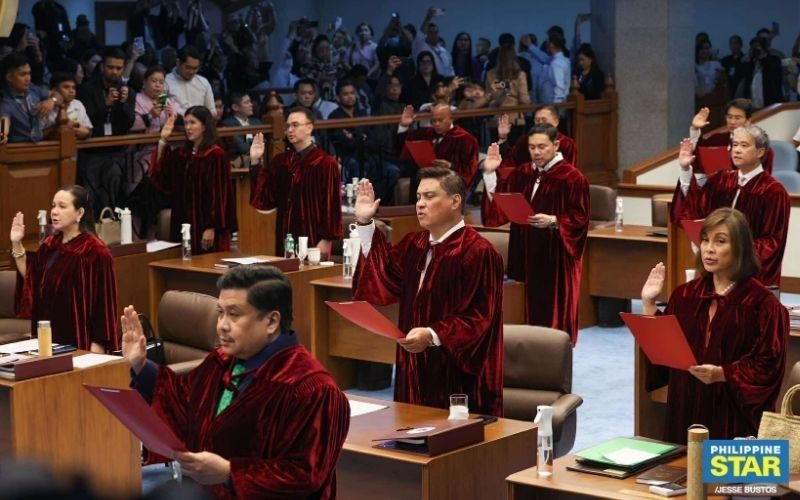
Upgrade to High-Speed Internet for only ₱1499/month!
Enjoy up to 100 Mbps fiber broadband, perfect for browsing, streaming, and gaming.
Visit Suniway.ph to learn
Cristina Chi - Philstar.com
June 25, 2025 | 4:01pm
MANILA, Philippines — A United Nations special rapporteur has urged the Marcos administration anew to end the vilification of rights defenders, saying the absence of an official policy does not excuse government inaction against the dangerous practice of red-tagging.
UN Special Rapporteur on Freedom of Expression Irene Khan told reporters Tuesday, June 24, that President Ferdinand Marcos Jr. must issue an executive order establishing clear consequences for officials who engage in the practice.
Red-tagging involves falsely labeling individuals as communist supporters or sympathizers. These are often issued without evidence and has been linked to a rising wave of harassment, arrests and killings of rights advocates regardless of affiliation.
"The government claims it does not condone it. If that is so, they should put that in an official executive order and make it very clear that when state officials are carrying out this practice that there will be consequences," Khan said during a press conference following her presentation of her report on the Philippines' rights situation to the UN Human Rights Council on June 19.
Khan's findings on the state of free speech and expression in the Philippines came after her over week-long visit to the country in January 2024 upon the invitation of the Philippine government.
She saw a vibrant civil society and dynamic media landscape overshadowed by state forces' persistent harassment of rights defenders and community journalists. The special rapporteur later recorded 467 cases of red-tagging in the first six months of 2024 alone.
While she noted that the Marcos administration has taken steps to cease the "horrendous attacks on human rights" by the Duterte administration, the UN rapporteur told the UN Human Rights Council that these have "not been enough to turn the page decisively on the past."
Khan said her findings were supported by the UN National Human Rights Commission chairperson, Jürg Lauber.
"The truth is the facts on the ground are that people are being red-tagged. People are being endangered," Khan said.
"My finding was supported by the chair of the National Human Rights Commission," she said. "And therefore, I believe there is sufficient clear evidence now of this practice."
Impunity, delayed trials under Marcos
The urgency of Khan's call was underscored by another journalist's killing in Mindanao just days before the presentation of her report. Khan said the recent murder of trans woman and former broadcaster Ali Macalintal highlighted how the Philippines has to "take a number of measures before it can turn the page on the past," especially on impunity. Macalintal advocated for the Moro-Lumad community under the Duterte administration and previously received threats through text messages in 2019.
"Her killing, I think, underlines once again my key finding that while this government, the administration of President Marcos has made some changes, a lot more needs to be done," Khan said.
The special rapporteur also spotlighted the delays in the case of detained community journalist Frenchie Mae Cumpio as an example of how the justice system falters. Cumpio has been detained for over five years.
"I don't know exactly why the authorities are not considering approving her application for bail and why the justice system hasn't woken up to the injustice that it is committing and accelerate her trial," Khan said.
Khan also called Cumpio's prolonged detention "an absolute shame" and pressed the government to review her case, saying the slow-moving trial effectively turns the justice system into "a system for harassing."
Special prosecutor for journalist killings
Beyond red-tagging, Khan recommended that the government install a special prosecutor to investigate journalist killings. The government has resisted this recommendation, claiming existing measures through the Department of Justice are sufficient.
Khan also urged the Philippine government to rejoin the Rome Statute establishing the International Criminal Court and the abolition of the National Task Force to End Local Communist Armed Conflict.
Marcos has consistently refused to dismantle the controversial Duterte-era task force focused on anti-terrorism. But he has recently expressed his openness to rejoining the ICC, which Khan said she was "pleased to note."
"I hope that the president will consider and actually act on it to once again," Khan said. "That will be an indication of this government's commitment to address impunity."
Despite her criticism, Khan also welcomed the government's constructive engagement with her mandate — a marked change from the previous administration.
However, Khan also warned that the international community would be watching how the government handles emblematic cases like Cumpio's.
Vibrant civil society
While acknowledging that international oversight and UN mechanisms can help pressure the government to act, Khan believes lasting change must ultimately come from within the Philippines.
"At the end of the day, it is not the international system. It is not the Human Rights Council. It is not the special rapporteurs that bring about change on the ground. It's the people. It's the civil society organizations," Khan said.
She called on the government to nurture rather than harass civil society groups, given their importance in creating an inclusive reform process.
"I was very impressed with civil society. I've never received so many submissions and such active engagement with my mandate as I did in the Philippines," Khan said. "I think that is also something that will make sure that the government stays on the right path."

 4 hours ago
3
4 hours ago
3



